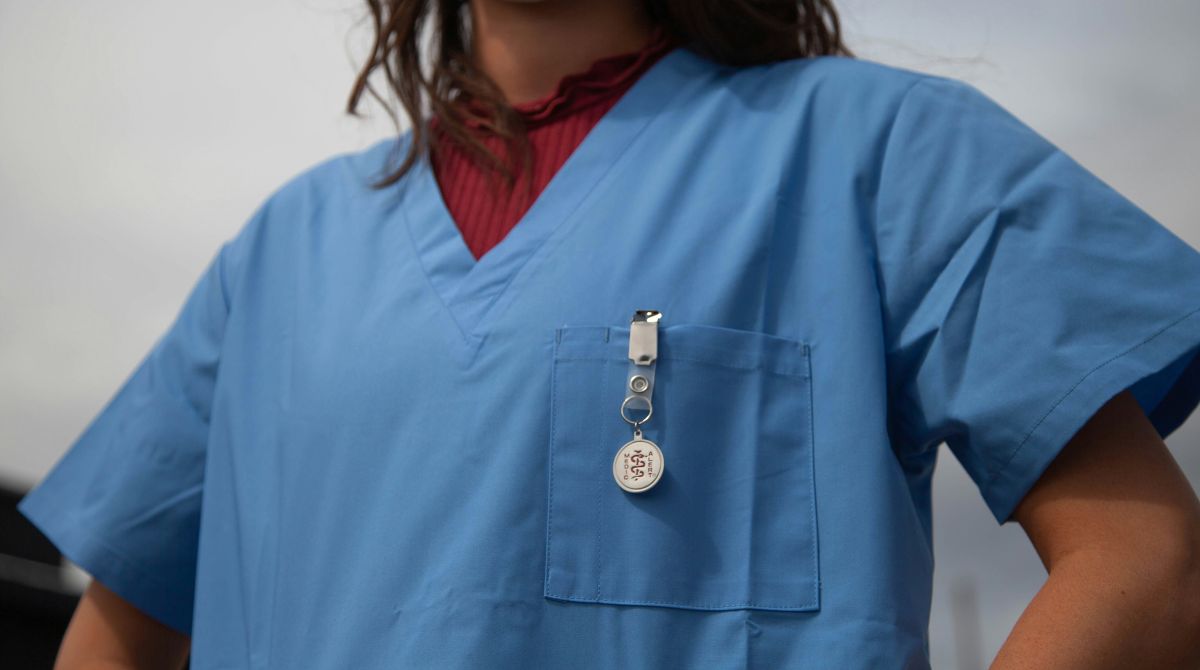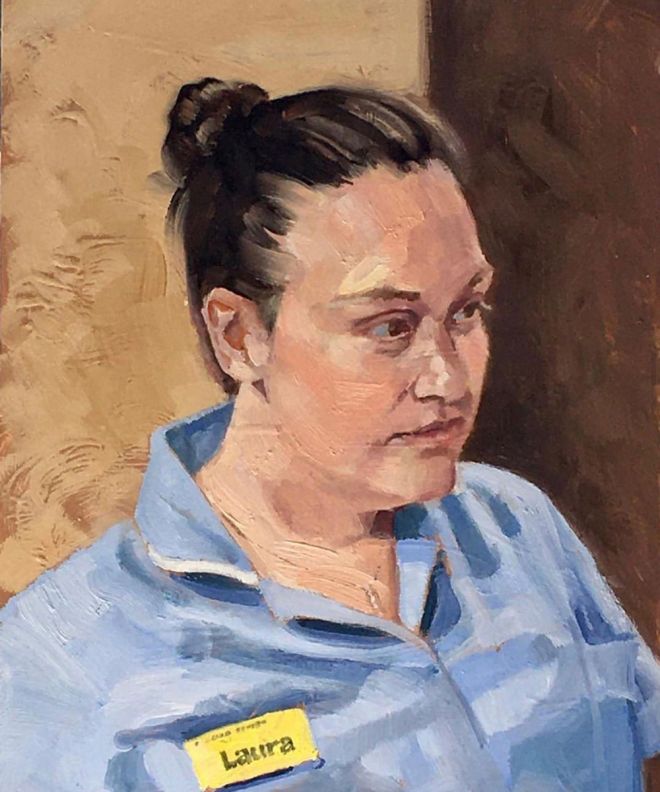Deaf Awareness Week: Kingston University graduate reflects on working in critical care as a deaf nurse
Posted Tuesday 7 May 2024

Laura Johncock is a critical care nurse who recently graduated from Kingston University, having completed a course in intensive care, and is deaf. To mark Deaf Awareness Week (6-12 May 2024), she describes her experiences on the course and working in the NHS as someone with hearing loss and how she overcame barriers to realise her dreams of becoming a nurse.
My name is Laura. I'm proudly deaf and wear a cochlear implant. I currently work in critical care as a nurse but have worked for the NHS since 2015. Growing up, I always knew I wanted to be a nurse but didn't think it would be possible. As I progressed through life and excelled in many areas, I decided to pursue my dream of becoming a nurse.
There are many barriers that someone like me can come across when trying to achieve what a ‘normal' person sets out to achieve. For example, when I went to university to do my nursing degree, there was advanced planning that was done to find a British Sign Language (BSL) interpreter, they set up a support plan for each class, ordering equipment I might have needed for classes and placements, visited placements beforehand and carrying out risk assessments – it is quite a task in itself. I remember the day I went to occupational health to see the doctor for my initial consultation and was told I would not make it as a nurse. Those words have always stuck with me, so it's almost like I have imposter syndrome when I am at work.
When I got the job at critical care, I was both excited and nervous at the same time. We were still in second wave of the pandemic so we were still in full Personal Protective Equipment (PPE). Even though I wear a cochlear implant I rely on lip reading for 70 per cent of the conversations. It was a real struggle for the first six months as I was getting used to both the unit and the staff. But I was fully supported by the matron who was able to buy the equipment that I needed to assist me to do my job and help communicate to the team my needs for better communication, which was making sure they were facing me when talking to me and clear lipreading. My journey to complete my introduction to critical care course was made a lot better by my two mentors who were absolutely brilliant and I couldn't fault them.
In September 2022, I started my intensive care course at Kingston University and the admission process was straight forward. I remember the first time I met Heather Kincaid, one of the lecturers. She had come all the way to my place of work to meet myself and others who were attending the course and we discussed the support I would need from the lecturers themselves and additional support to help me excel in the course via notes, scripts and BSL interpreters. By the time I started the course a lot of what I needed was in place and I was able to follow the course along with everyone else with the full support of both Heather and Siby Sikhamoni, another one of the lecturers.
In May 2023, I found myself on the other side of the uniform after I was admitted to hospital with acute cholecystitis. I found myself a little out of my depth because it was very chaotic in A&E and I was in pain – I was so glad that my mum has accompanied me otherwise I would have been lost. My mum had to do a lot of repeating as I was struggling with the accents of the doctors, the noise and the chaos.
I was admitted onto the surgical ward and the doctors would come round very early at 8am so I would have to quickly put my cochlear implant on and listen to what was being said. But because I had just woken up, I didn't have a chance to digest the information I was told, or they would stand at the end of the bed where I was not able to lip read. I had to make a conscious effort to wake up before the doctors came which was very hard as I was on morphine and it was making me very sleepy. I remember one night during my stay the nurse didn't wake me up as I'm not sure if she knew I was deaf and I had been woken up to my arm being squeezed by the blood pressure cuff machine. I think if I was not a nurse and did not understand what was going on I would have felt a lot different about the situation.
Fast forward to the present day and we have had a deaf patient admitted here in critical care, who is a full BSL user. He was very expressive which is very normal for deaf people in deaf culture and when he originally came in, he was confused and did not understand what was going on. The staff found it hard to communicate with him when they had to emergency intubate the patient.
After a period of time and now extubated, the patient found communication difficult. He had a board to communicate via writing, the staff kept coming to me and saying that the patient is being "rude" but I went to see the patient and it was the opposite. He was just talking expressively which can come across a rude again if you don't know deaf culture because deaf people use their hands and he was just trying to communicate that he wanted a bigger portion for lunch. I felt the patient really valued and benefited from having me, a fellow deaf person, on the ward and helping him – it just makes my job even more rewarding and vindicates my decision to go into nursing.
- Find out more about studying nursing at Kingston University.